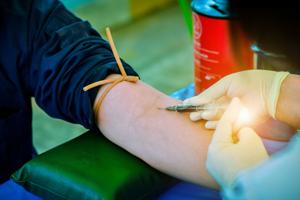California nursing shortage exacerbated by vaccine mandate deadline

(The Center Square) – Federal and state COVID-19 vaccine mandates are exacerbating a nursing shortage in California.
The recent federal mandate requires health care workers at Medicare- and Medicaid-funded hospitals to take the COVID-19 vaccines or the facilities where they work would lose federal funding. The order has resulted in nurses and medical staff nationwide saying they would instead retire or sue. Major health care unions have also said they will sue, arguing the order violates the very federal law used to issue the vaccines to begin with.
Moderna and Johnson & Johnson COVID-19 vaccines are currently only available through Emergency Use Authorization, which federal law requires only be administered on a voluntary basis with informed consent.
But the federal mandate hasn’t yet been implemented and will likely be held up in courts, whereas California issued its own state mandate with a Sept. 30 deadline, posing an immediate concern. California was the first state to mandate that health care workers receive the shots as a condition of employment, with limited exemptions.
The California Department of Public Health (CDPH) issued an order Aug. 5 requiring health care workers in hospitals, skilled nursing facilities, intermediate care facilities, ambulatory surgery centers and most health care settings to receive both COVID-19 doses by Sept. 30. Workers could apply for limited exemptions but would also be subject to a range of testing and other requirements as a condition of employment.
Years before COVID-19, nursing shortages were already a problem statewide, the Office of Statewide Health Planning and Development reports. Based on 2018 data, it designated 58 out of 72 geographic areas in the state as Registered Nurse Shortage Areas. Among them, 17 had high shortages, 21 had medium shortages.
Now the state is facing an even greater nursing shortage, professionals throughout the state note, resulting in Gov. Gavin Newsom signing an executive order to allow out-of-state healthcare workers to work in California. The order reinstated emergency provisions allowing the CDPH to waive certain staffing licensing requirements through Dec. 31 for applicable hospitals and health facilities per California code.
But even this has hit a roadblock because of traveling nurses, who are in high demand, who won’t comply with the federal or state mandates, turning down California assignments. The traveling nurse shortage is also problematic because the state last year contracted with one of the nation’s largest traveling nurse providers to help already understaffed medical facilities.
In March 2020, the CDPH contracted with Aya Health, committing to pay up to $1 billion over six months to help hospitals meet nursing and other clinical staff shortages.
“All of our hospitals are saying staffing is a big problem,” Lois Richardson, attorney for the California Hospital Association, told Cal Matters. “We have fewer personnel than at the beginning of the pandemic and more patients.”
But with traveling nurses choosing not to work in California, association spokesperson Jan Emerson-Shea told The Associated Press, “How this is going to play out, we don’t know. We are concerned about how it will exacerbate an already quite serious staffing problem.”
While she says the association “absolutely” supports the state’s mandate, she acknowledges that some hospitals are anticipating having to fire or suspend employees, move some to other positions, and that many traveling nurses won’t take assignments in California because of the state’s mandate.
Advocates for Faith and Freedom says it’s received more inquiries for help to file exemptions than its staff can respond to, and posted an exemption template and guidance on its website. It also provides guidance for Californians to consider when applying for a medical exemption, stating the resources are free and not intended to be an offer to provide legal services.
“Be assured that we are litigating on multiple fronts in an attempt to establish legal precedent that religious exemptions must be granted,” the nonprofit adds. The group is currently litigating “a significant case against a university to try to establish precedent that prevents discriminatory treatment of persons who choose to reject the Covid-19 shots.”
Disclaimer: This content is distributed by The Center Square
